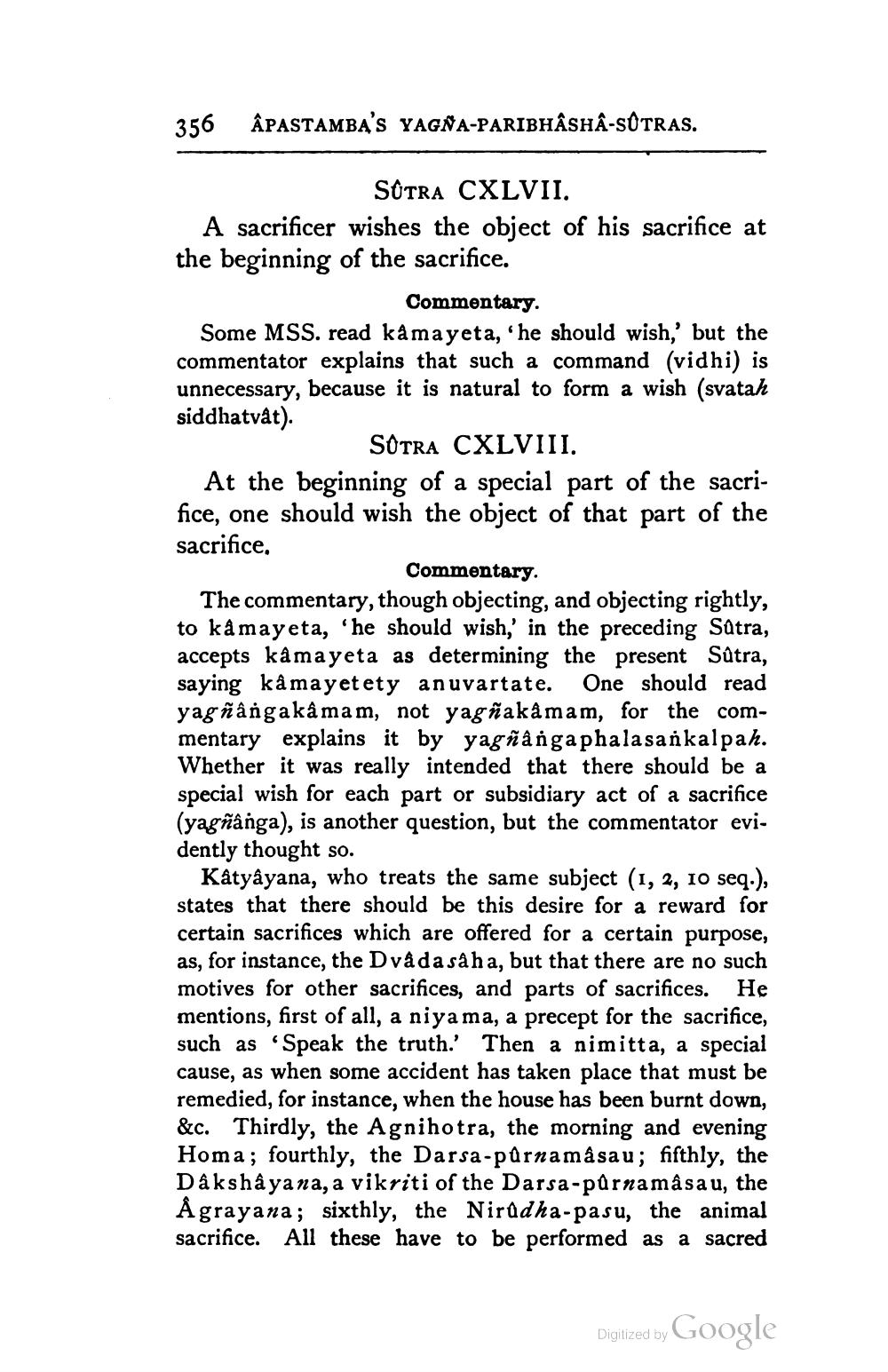________________
356
ÂPASTAMBA'S YAGÑA-PARIBHÂSHA-SOTRAS.
SOTRA CXLVII. A sacrificer wishes the object of his sacrifice at the beginning of the sacrifice.
Commentary. Some MSS. read kama yeta, he should wish,' but the commentator explains that such a command (vidhi) is unnecessary, because it is natural to form a wish (svatah siddhatvat).
SOTRA CXLVIII. At the beginning of a special part of the sacrifice, one should wish the object of that part of the sacrifice,
Commentary. The commentary, though objecting, and objecting rightly, to kamayeta, 'he should wish,' in the preceding Satra, accepts kama yeta as determining the present Sûtra, saying kamayetety anuvartate. One should read yag ñângakamam, not yag ñakamam, for the commentary explains it by yagña ngaphalasankalpah. Whether it was really intended that there should be a special wish for each part or subsidiary act of a sacrifice (yągñanga), is another question, but the commentator evidently thought so.
Katyayana, who treats the same subject (1, 2, 10 seq.), states that there should be this desire for a reward for certain sacrifices which are offered for a certain purpose, as, for instance, the Dvåda så ha, but that there are no such motives for other sacrifices, and parts of sacrifices. He mentions, first of all, a niya ma, a precept for the sacrifice, such as 'Speak the truth.' Then a nimitta, a special cause, as when some accident has taken place that must be remedied, for instance, when the house has been burnt down, &c. Thirdly, the Agnihotra, the morning and evening Homa; fourthly, the Darsa-půrnamâsau; fifthly, the Dakshầyana, a vikriti of the Darsa-půrnamâsau, the Ågrayana; sixthly, the Nirudha-pasu, the animal sacrifice. All these have to be performed as a sacred
Digitized by Google




